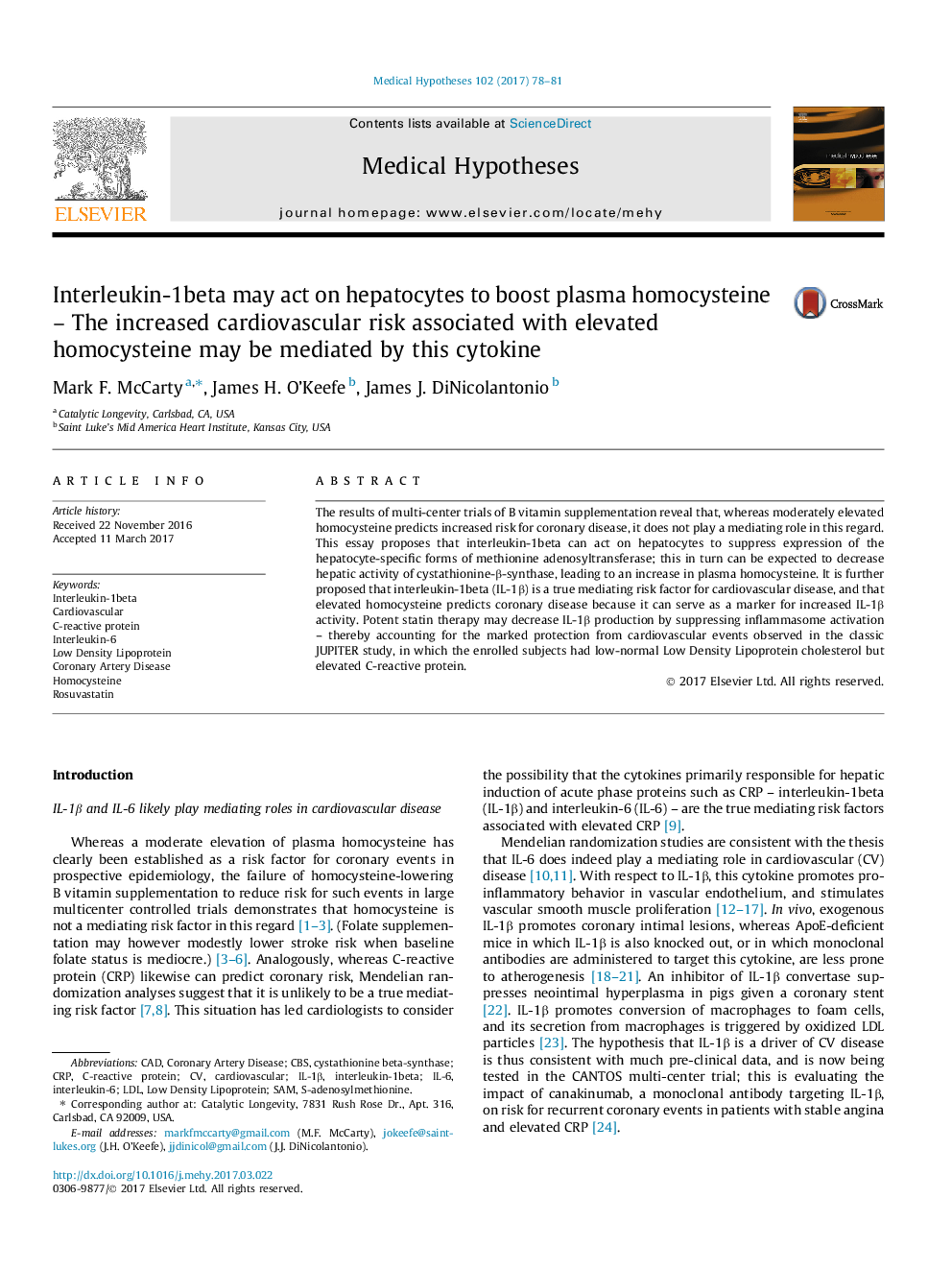| Article ID | Journal | Published Year | Pages | File Type |
|---|---|---|---|---|
| 5548498 | Medical Hypotheses | 2017 | 4 Pages |
The results of multi-center trials of B vitamin supplementation reveal that, whereas moderately elevated homocysteine predicts increased risk for coronary disease, it does not play a mediating role in this regard. This essay proposes that interleukin-1beta can act on hepatocytes to suppress expression of the hepatocyte-specific forms of methionine adenosyltransferase; this in turn can be expected to decrease hepatic activity of cystathionine-β-synthase, leading to an increase in plasma homocysteine. It is further proposed that interleukin-1beta (IL-1β) is a true mediating risk factor for cardiovascular disease, and that elevated homocysteine predicts coronary disease because it can serve as a marker for increased IL-1β activity. Potent statin therapy may decrease IL-1β production by suppressing inflammasome activation - thereby accounting for the marked protection from cardiovascular events observed in the classic JUPITER study, in which the enrolled subjects had low-normal Low Density Lipoprotein cholesterol but elevated C-reactive protein.
